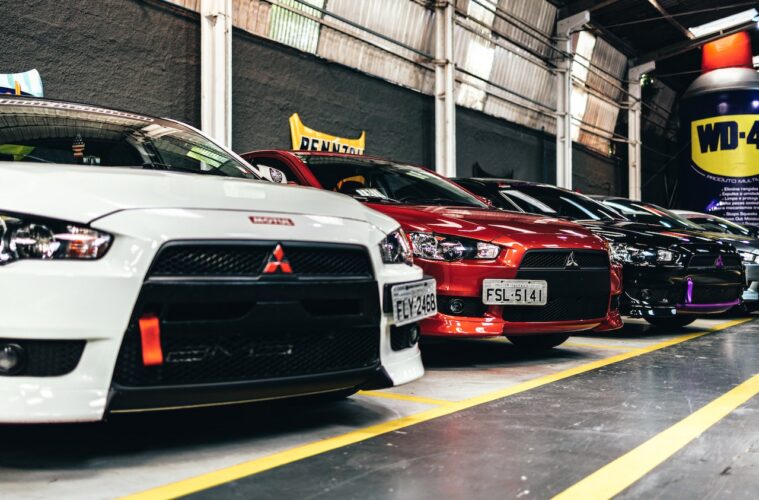Leasing a car may seem like an attractive option for those looking to get behind the wheel of a new vehicle without committing to a long-term purchase. However, there are several reasons why leasing may not be the best choice for everyone. Here are 10 reasons why you might want to think twice before leasing your next car.
First, leasing a car can result in high long-term costs. While monthly lease payments may be lower than loan payments, leasing often requires a large down payment and can come with additional fees and charges that add up over time. Additionally, at the end of the lease term, you will not own the car and will need to start the process over again if you want to continue driving a new vehicle.
Second, leasing a car often comes with limited mileage allowances. If you exceed the mileage limit, you may be subject to additional fees. This can be a problem for those who frequently drive long distances or use their car for work. Additionally, wear and tear charges can add up quickly, as even normal use of the vehicle can result in costly repairs and maintenance fees.
Key Takeaways
- Leasing a car can result in high long-term costs and limited mileage allowances.
- Wear and tear charges and early termination fees can add up quickly.
- Alternatives to leasing, such as buying a used car or financing a purchase, may be more cost-effective in the long run.
Understanding Car Leasing
Car leasing is an alternative to buying a car outright. It allows an individual to drive a new car without having to pay the full purchase price. Instead, the individual pays a monthly fee to use the car for a set period, typically two to four years.
The monthly payment for a lease is determined by the car’s residual value, which is the estimated value of the car at the end of the lease term. The higher the residual value, the lower the monthly payment. The residual value is based on factors such as the car’s make and model, its condition, and the expected mileage at the end of the lease term.
In addition to the monthly payment, a lessee may be required to pay a down payment, also known as a capitalized cost reduction, at the beginning of the lease term. This reduces the amount of the monthly payment. Lessees may also be responsible for additional fees, such as a disposition fee at the end of the lease term if they choose not to purchase the car.
One advantage of leasing a car is that the lessee can drive a new car every few years without having to worry about selling or trading in the old car. Additionally, the monthly payment for a lease is often lower than the monthly payment for a car loan, which can make it more affordable for some individuals.
However, there are also disadvantages to leasing a car. The lessee does not own the car at the end of the lease term and may be responsible for additional fees if they exceed the mileage limit or damage the car. Additionally, the lessee may be required to maintain the car according to the manufacturer’s recommendations, which can be costly.
Overall, understanding car leasing is important for individuals who are considering leasing a car. It is important to carefully consider the advantages and disadvantages of leasing before making a decision.
High Long-Term Costs
Leasing a car may seem like a great deal at first, but it can end up costing you a lot more in the long run. One of the main reasons not to lease a car is the high long-term costs associated with it.
When you lease a car, you are essentially renting it for a few years. At the end of the lease term, you have to return the car to the dealer, and you don’t have anything to show for the money you spent. If you decide to lease another car, you’ll have to start the process all over again and continue paying for something that you’ll never own.
Leasing a car also comes with hidden fees and charges that can add up over time. For example, most leases have a mileage limit, and if you go over that limit, you’ll have to pay extra fees. Additionally, if you return the car with any damage, you’ll be charged for repairs.
Another factor that contributes to high long-term costs is the fact that you’ll always have a car payment. When you buy a car, you eventually pay it off, and then you own it outright. With a lease, you’ll always have a monthly payment, which can be a significant expense over time.
Overall, leasing a car may seem like a good idea in the short term, but it can end up costing you a lot more in the long run. If you’re looking for a more cost-effective option, buying a used car or saving up to buy a new car outright may be a better choice.
Limited Mileage
Leasing a car comes with certain restrictions and limitations, one of which is limited mileage. Most lease agreements come with a set number of miles that you are allowed to drive each year, usually ranging from 10,000 to 15,000 miles. If you exceed this limit, you will be charged an excess mileage fee, which can be quite expensive.
For individuals who have long commutes or enjoy taking road trips, the limited mileage allowance can be a significant drawback. It can be challenging to stick to the set number of miles, and the excess mileage fees can add up quickly.
Moreover, the limited mileage allowance can also restrict your freedom to use the car as you please. You may have to think twice before taking a road trip or driving to a far-off destination, as it can quickly eat into your mileage allowance.
Additionally, if you end up driving more than the set mileage limit, you may have to pay a hefty fee when returning the car at the end of the lease term. This can be a significant financial burden and can negate any savings you may have made by leasing the car in the first place.
In conclusion, the limited mileage allowance can be a significant disadvantage of leasing a car, especially for individuals who drive frequently or enjoy taking road trips. It is essential to carefully consider your driving needs and habits before entering into a lease agreement to avoid any unpleasant surprises down the road.
Wear and Tear Charges
Another reason why leasing a car may not be the best option is the wear and tear charges that come with it. Wear and tear charges are fees that are imposed on the lessee at the end of the lease term for any damage or excessive wear to the leased vehicle.
These charges can add up quickly, and lessees may be surprised by the amount they are required to pay. The cost of wear and tear charges can vary depending on the leasing company and the condition of the vehicle.
It is important to note that wear and tear charges are not covered by insurance, and the lessee is fully responsible for any damage to the vehicle. This can be a significant financial burden for those who are not prepared for these charges.
To avoid excessive wear and tear charges, lessees should take care of the vehicle during the lease term. This includes regular maintenance, keeping the vehicle clean, and avoiding any damage or excessive wear. Lessees should also be aware of the lease agreement and any restrictions on use or modifications to the vehicle.
In conclusion, wear and tear charges can be a significant expense for those who choose to lease a car. Lessees should be aware of these charges and take steps to avoid them to minimize their financial burden.
No Ownership
Leasing a car means that the lessee doesn’t own the car. The car is owned by the leasing company, and the lessee is essentially renting the car for a set period of time. This lack of ownership can be a major downside for some people. Ownership of the vehicle is particularly important when considering how much you may enjoy the purchase of your dream JDM car and know that this is all yours, once you make that transaction and complete the required paperwork.
One of the biggest advantages of owning a car is that the owner has complete control over the car. They can modify it, decorate it, and personalize it in any way they see fit, whether that’s an upgraded sound system, private plates, window tinting, or something else entirely. However, with a leased car, the lessee is not allowed to make any modifications to the car without the leasing company’s approval. This can be frustrating for people who like to customize their cars.
Another disadvantage of not owning the car is that the lessee is limited in terms of how much they can drive the car. Most leases come with mileage limits, and if the lessee goes over the limit, they will have to pay additional fees. This can be a problem for people who have long commutes or who like to take road trips.
Furthermore, when the lease is up, the lessee has to return the car to the leasing company. They don’t have the option to keep the car or sell it to someone else. This means that the lessee doesn’t have any equity in the car, and they don’t have any asset to sell or trade in.
In summary, not owning the car can be a major downside of leasing. The lack of control over the car, the mileage limits, and the inability to build equity in the car are all reasons why some people might prefer to own a car rather than lease one.
Early Termination Fees
Leasing a car is a long-term commitment, and if you try to end the lease early, you may be hit with early termination fees. These fees can be quite substantial and can add up quickly.
Early termination fees are designed to compensate the leasing company for the loss of value that occurs when a lease is terminated early. The fees are typically calculated based on the remaining payments on the lease, and can be as high as several thousand dollars.
It’s important to carefully consider the potential early termination fees before signing a lease. If you think there’s a chance you may need to terminate the lease early, you may want to consider other options, such as buying a used car or leasing a shorter-term lease.
Some other factors to keep in mind when it comes to early termination fees include:
- Some leasing companies may waive the fee if you lease another car from them.
- Some leasing companies may allow you to transfer the lease to someone else, which can help you avoid the fees.
- If you’re considering terminating the lease early, it’s important to carefully review the terms of the lease agreement to understand your options and obligations.
Overall, early termination fees can be a significant cost when leasing a car. It’s important to carefully consider the potential fees before signing a lease, and to understand your options if you need to terminate the lease early.
Insurance Costs
One of the biggest expenses associated with car ownership is insurance. When leasing a car, insurance costs are often higher than when buying a car outright. This is because leasing companies typically require drivers to have higher levels of insurance coverage than they would if they owned the car outright.
Leasing companies often require drivers to have both collision and comprehensive insurance coverage. Collision insurance covers damage to the car in the event of an accident, while comprehensive insurance covers damage caused by non-collision events such as theft, vandalism, or natural disasters.
The cost of insurance can vary widely depending on the type of car being leased, the driver’s age, driving record, and location. Drivers should be sure to shop around for insurance quotes before signing a lease agreement to ensure they are getting the best possible rate.
In addition to insurance costs, leasing companies may also require drivers to purchase gap insurance. Gap insurance covers the difference between the car’s value and the amount owed on the lease in the event of a total loss. While gap insurance can provide valuable protection, it can also add to the overall cost of leasing a car.
Lack of Equity
Leasing a car means that you are essentially renting it for a set period of time, usually two to three years. At the end of the lease, you must return the vehicle to the dealership. Unlike owning a car, you do not build any equity in the vehicle during the lease term.
When you finance a car, your monthly payments go towards paying off the loan, which means you are building equity in the car. Once the loan is paid off, you own the car outright and can sell it or trade it in for a new vehicle. With a lease, you have no equity to show for the money you have spent on monthly payments.
Furthermore, if you decide to end the lease early, you will likely face penalties and fees, which can add up quickly. These fees can include early termination fees, excess mileage fees, and wear and tear fees.
Leasing a car can be an attractive option for those who want a new car every few years and do not want to deal with the hassle of selling or trading in a vehicle. However, if building equity in a car is important to you, leasing may not be the best financial decision.
Depreciation Costs
One of the biggest drawbacks of leasing a car is the depreciation costs. Depreciation is the difference between the value of the car when you first lease it and the value of the car when you return it. It’s a significant factor in determining your monthly lease payments.
When you lease a car, you’re essentially paying for the depreciation of the vehicle during the lease term. This means that you’ll be paying for the difference between the car’s initial value and its residual value at the end of the lease. Unfortunately, cars tend to depreciate quickly, especially during the first few years of ownership.
According to Edmunds, the average new car loses around 20% of its value in the first year and around 50% of its value after five years. This means that if you lease a car for three years, you’ll be paying for a significant portion of the car’s depreciation.
Moreover, if you exceed the mileage limit or damage the car, you may be charged additional fees at the end of the lease. These fees can add up quickly and further increase the depreciation costs.
In summary, depreciation costs can make leasing a car an expensive option in the long run. If you’re looking for a more cost-effective solution, buying a used car or financing a new car may be a better option.
Alternatives to Leasing
Leasing a car is not the only option available to consumers. Here are a few alternatives to consider:
Buying a Used Car
Purchasing a used car can be an excellent alternative to leasing. Used cars are typically less expensive than new cars, and they often come with lower insurance rates and registration fees. Additionally, used cars do not depreciate as quickly as new cars, which means you can often sell them for a similar price to what you paid for them.
Financing a New Car
Financing a new car may be a better option for those who want to own a car but cannot afford to pay for it in cash. Financing allows you to spread the cost of the car over a period of time, usually three to five years. While you will have to pay interest on the loan, you will own the car outright once the loan is paid off.
Car Sharing Services
Car sharing services like Zipcar and Car2Go are becoming more popular in urban areas. These services allow you to rent a car for a short period of time, usually by the hour or day. While car sharing services can be more expensive than leasing in the long run, they can be a great option for those who only need a car occasionally.
Public Transportation
Depending on where you live, public transportation may be a viable alternative to owning or leasing a car. Public transportation can be less expensive than owning a car, and it can be more environmentally friendly. Additionally, many cities are investing in public transportation infrastructure, which means it may become more convenient and accessible in the future.
Ride-Sharing Services
Ride-sharing services like Uber and Lyft are another alternative to owning or leasing a car. These services allow you to request a ride from a driver using a smartphone app. While ride-sharing services can be more expensive than owning a car in the long run, they can be a great option for those who only need a ride occasionally or for those who do not want to deal with the hassle of owning a car.
Frequently Asked Questions
What are the disadvantages of leasing a car?
Leasing a car comes with several disadvantages. Firstly, you will not own the car at the end of the lease period. Secondly, you will be charged for any damages or excessive wear and tear on the car. Thirdly, you will be limited in terms of the number of miles you can drive the car. Finally, you will be required to maintain the car in good condition throughout the lease period.
Is leasing a car a waste of money?
Leasing a car can be a waste of money for some people. This is because you will be paying for the depreciation of the car during the lease period, which can be quite expensive. Additionally, you will be required to pay for any damages or excessive wear and tear on the car at the end of the lease period.
What are the problems with leasing a car?
There are several problems with leasing a car. Firstly, you will not own the car at the end of the lease period. Secondly, you will be charged for any damages or excessive wear and tear on the car. Thirdly, you will be limited in terms of the number of miles you can drive the car. Finally, you will be required to maintain the car in good condition throughout the lease period.
Is it better to lease or finance a car?
It depends on your individual circumstances. Leasing a car can be a good option if you want to drive a new car every few years and do not want to worry about selling or trading in the car. Financing a car can be a good option if you want to own the car at the end of the loan period and do not mind paying for maintenance and repairs.
Why should you not lease a car?
You should not lease a car if you want to own the car at the end of the lease period or if you plan to drive more than the allotted miles. Additionally, leasing a car can be more expensive than financing a car over the long term.
What are the reasons not to lease a car?
There are several reasons not to lease a car. Firstly, you will not own the car at the end of the lease period. Secondly, you will be charged for any damages or excessive wear and tear on the car. Thirdly, you will be limited in terms of the number of miles you can drive the car. Finally, leasing a car can be more expensive than financing a car over the long term.





